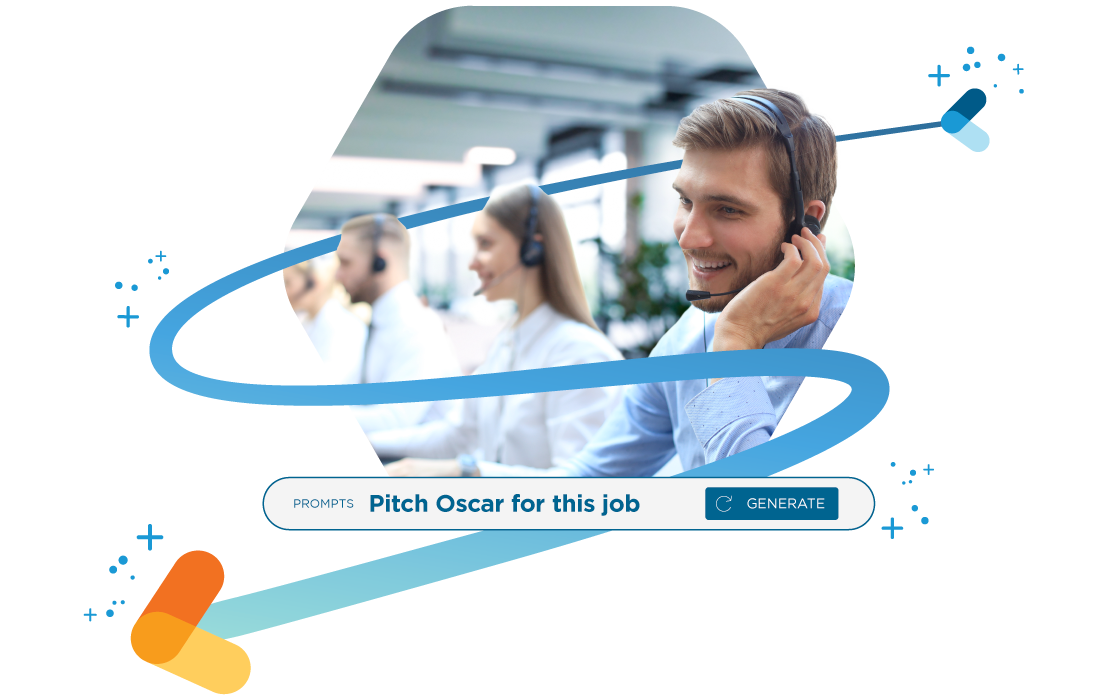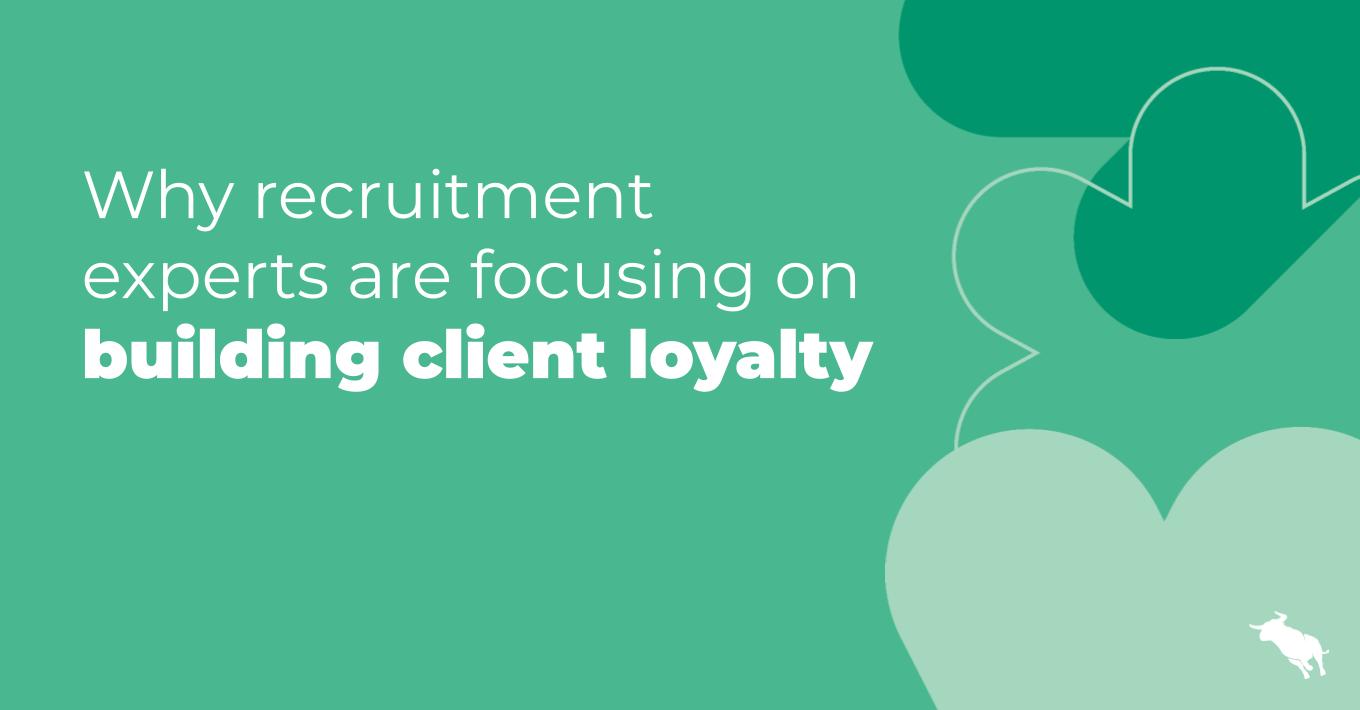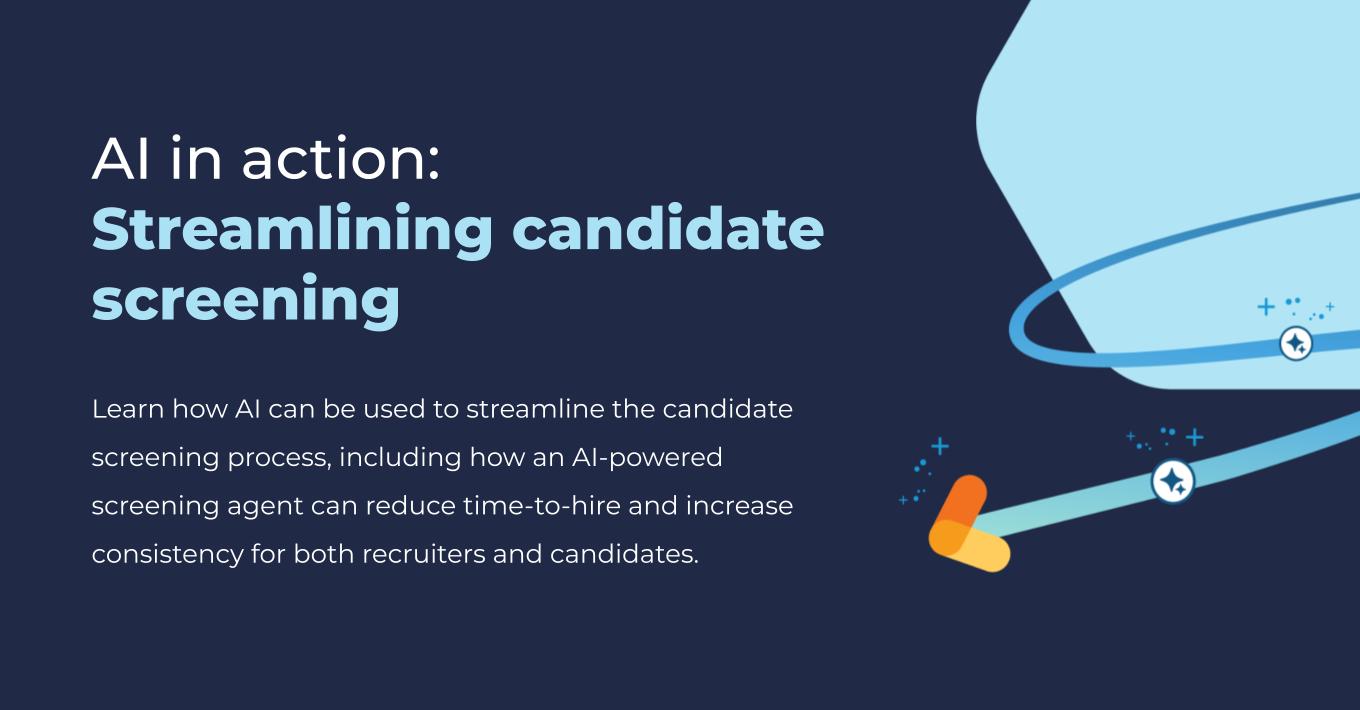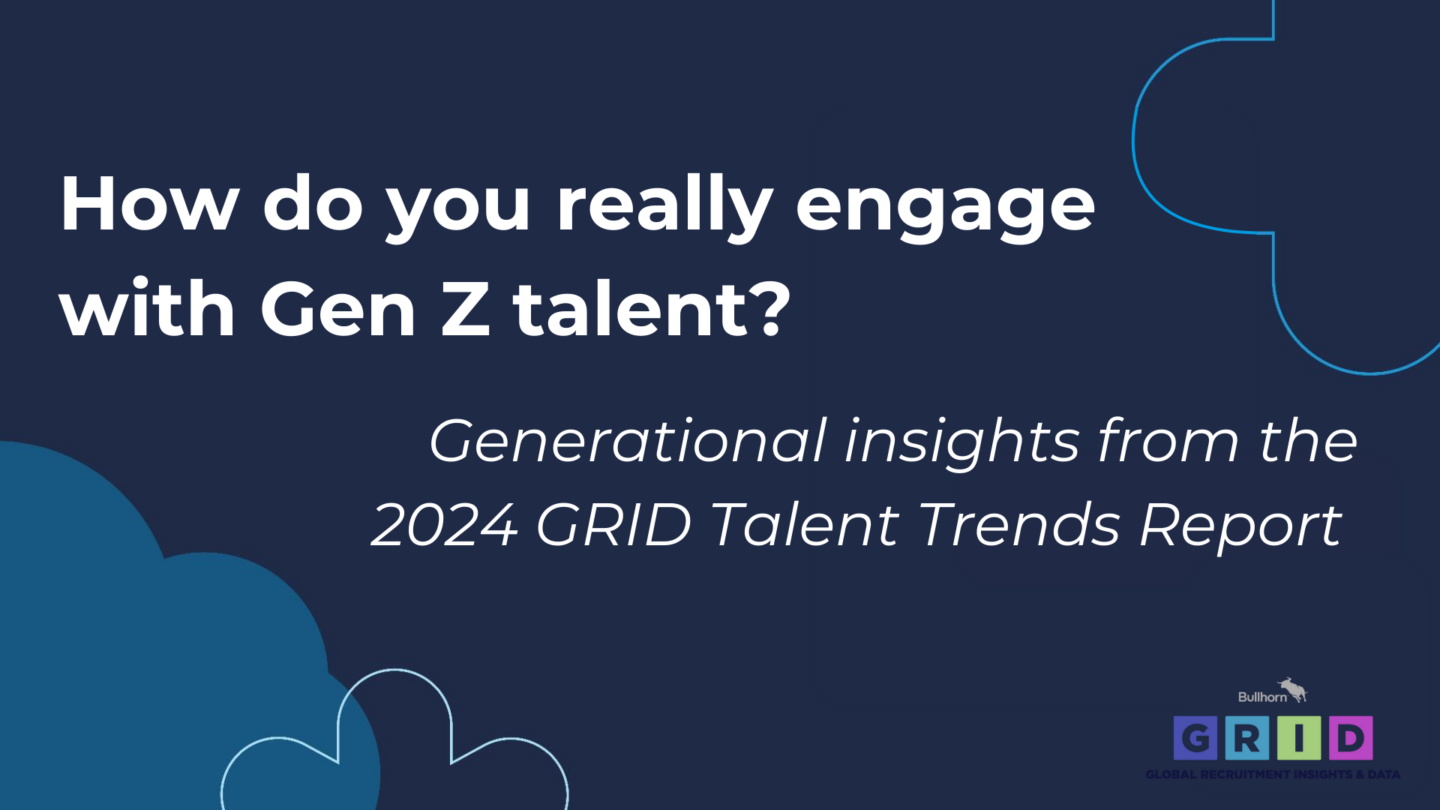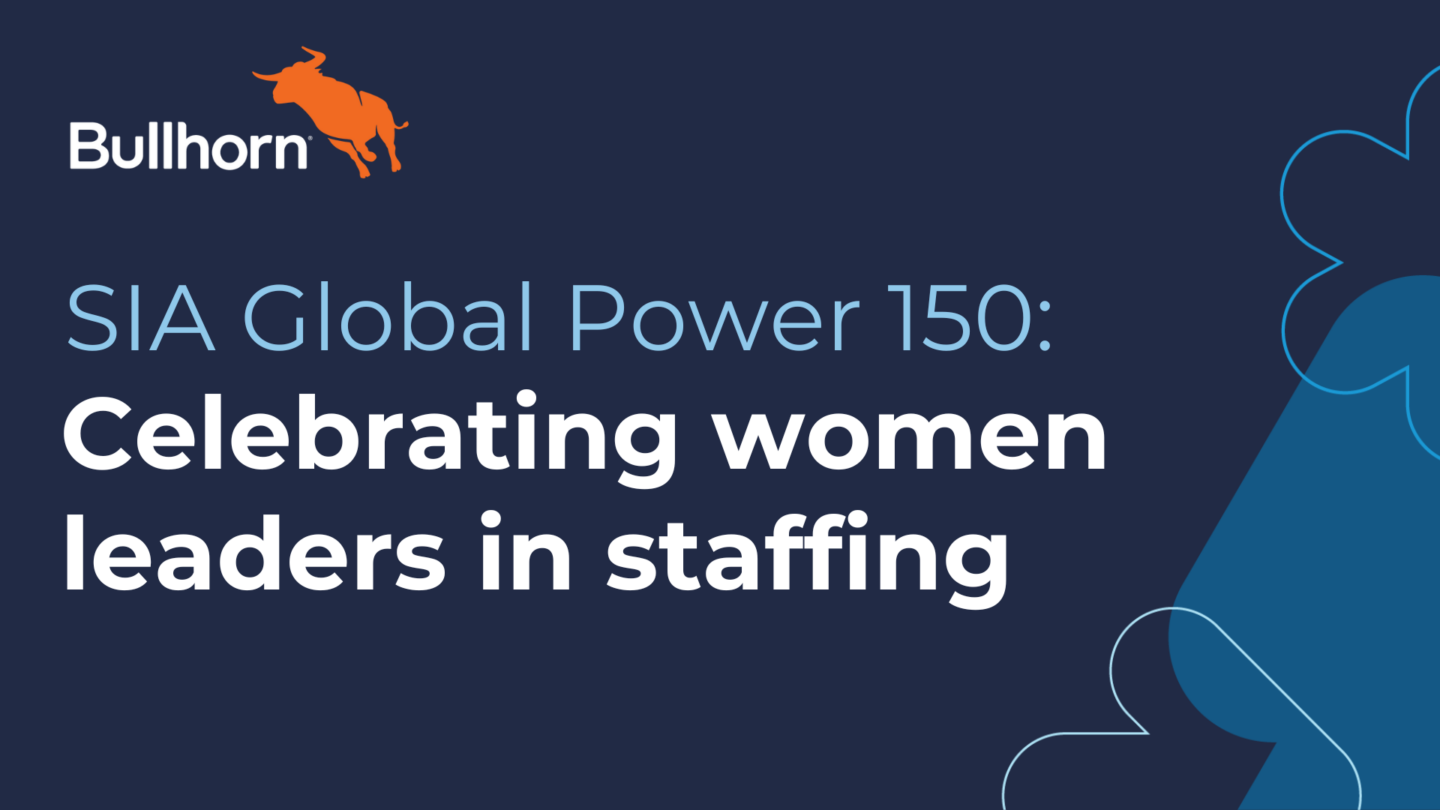How to Compete With the New Breed of Online Agencies

We had the pleasure of attending and speaking at the Recruitment Agency Expo on October 6, 2021. This was an extra special event for us, as this was the first time we were at a real-life event in the UK since before lockdown. If you missed our session led by Joshua Pines, VP International Alliances, or want to have a refresher of our speech, we’ve included the first part below.
We all know that the world is facing uncertainty and change at an unprecedented pace. You are being challenged to adapt, work within a different environment, and continue to be able to support the relationships that are so critical to the industry.
We’re now in the process of finding a new economic norm. Over the last year and a half, we shifted from an economy with historic low unemployment to a sharp high, and now we’re back to a market with a perceived talent shortage. Just last week, we had the end of the government furlough scheme adding another layer to the recovery and how to manage it from a workforce perspective.
A 2019 Harvard Business Review study looked at almost 5000 companies and found that 17% of companies don’t survive after a recession, 80% have slowed growth rates and only 9% flourish.
The success of companies depended on taking a long-term perspective and focusing on growth, not just cutting costs.
Digital vs. Traditional Brick and Mortar Agencies

Why does digital transformation even matter in recruitment? I think if you ignore it, you do so at your own peril. As we like to say, failing to prepare is preparing to fail.
Remember that stat about previous recessions from before? When an industry like ours and its adjacent industries is undergoing massive change, like we’ve seen, especially accelerated by the pandemic, and you’re not digitally transforming, then you are preparing to fail.
But what if the market is going well? Well, a great case study is Kodak. Kodak’s stock was at its highest just months before it fell apart. The market was going digital, but its executives looked primarily at current performance in the public markets. The digital competition to agencies is daunting in a similar way to those digital cameras in the early part of the last decade. For example, the amount of money digital agencies are raising should be eye-opening. Valuations are sky-high, which means they’re flush with cash. And that’s not the only thing working in the favour of online agencies.
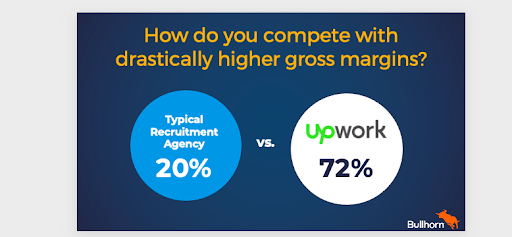
Margins are also in their corner. Their processes are streamlined, and they’ve been developed in concert with a technology infrastructure designed for this. So when you look at a typical agency with a 20% gross margin, and a digital agency like Upwork with more than 70%, it’s easy to get worried about the competitive threat.
Plus, the online agency experience looks slick and feels holistic like a Ferrari. The UX feels like what we are used to in our day-to-day lives. With the consumerisation of our industry, the expectations of hiring managers, talent, and even procurement have changed. When we can click an icon on our phone for dinner, a hotel room, or a car service, a paper timesheet looks downright absurd.
But there is a reason for optimism. Your peers are starting to come around, and the technology is there to help. The trend in the market is digitisation. And the trend is accelerating. Our research shows that agencies are adopting digital transformation strategies even faster than last year, with 72% more agencies saying they are implementing one now than before the pandemic. 43% of the market says they’re on their journey to digital transformation. Why? Because they know that margins are better when processes can be streamlined.
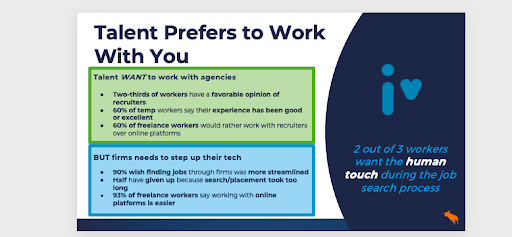
And not only that, the talent prefers to work with you as well. We recently surveyed the workforce, and the biggest theme was that candidates actually like working with recruitment firms and recruiters. Most of them want the human touch. They generally believe that recruiters will help them save time on the job search and find them better opportunities than they would on their own. One of the cool things we saw is that most freelance workers say they would rather work with recruiters than online talent platforms.
However, that doesn’t mean things are perfect. They unanimously want the process to be more seamless, and almost all of their problems fall into two categories:
- Challenges that are directly technology-related like recruitment firm sites that are hard to navigate or aren’t mobile-friendly
- Or problems that could be prevented by technology like not getting paid on time or onboarding that takes too long
In short, candidates want a relationship with you! They don’t want online talent platforms. You just need to meet them halfway here.
Reduce Costs While Maintaining Service
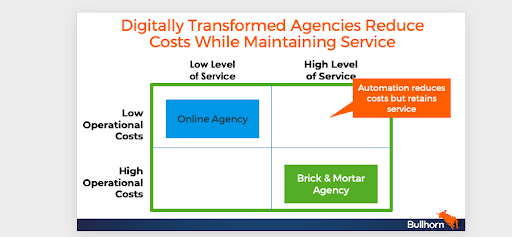
Online agencies work hard to keep their operational costs low. They need all that investment to build technology and market to clients and workers. But their level of service remains low. Meanwhile, the standard brick and mortar provides a high level of service but at a higher operational cost. In order to compete, you need to leverage your best qualities—your high level of service and your brand and relationships with your clients and workers—and leverage automation and digitisation to reduce operational costs while retaining services.
The full value of a recruitment firm is in building the best relationships with both the talent and client bases. We believe that by combining digitisation with what makes agencies unique and special – those relationships – we can together create a winning strategy.
The Winning Formula to Competing With Online Agencies
In conclusion, what’s important to understand are the benefits of digital transformation in today’s recruitment environment. It’s a winning formula that will help you survive this period of turbulence and uncertainty and better deal with the competitive threat of online agencies. First of all, you’ll be able to meet the challenging goal of lowering your operational costs. Then, automation will drive rapid growth for your business. And finally, you can leverage the investment you’ve already put into establishing your brand with both workers and clients. This all equals a better position to increase your profit and value to your stakeholders and beat the competition.
To learn more about staying ahead of your competition, check out Part 2: How to Keep Up With These 3 Recruitment Trends and subscribe to the Bullhorn Blog to get recruitment trends sent straight to your inbox.

